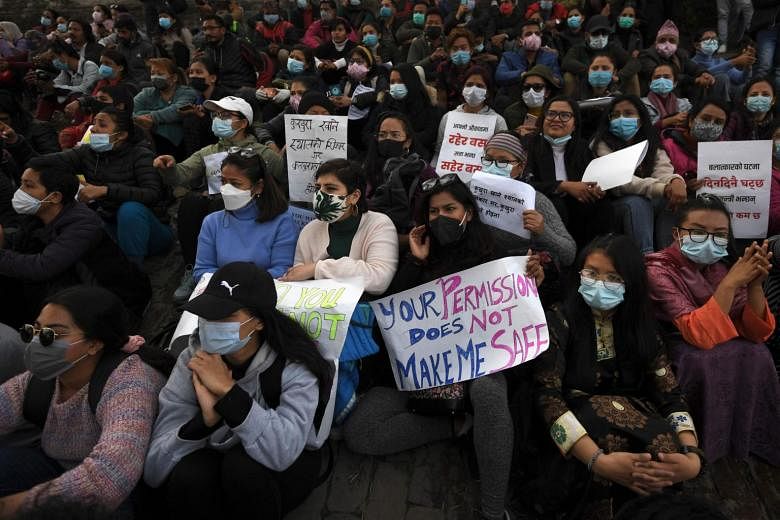KATHMANDU - In a controversial move, the Nepali government has proposed a new law that would require women to seek permission from their male guardians and local government wards before they can travel to Gulf countries or Africa for the first time.
The law proposed earlier this month is targeted at women under the age of 40 who want to travel to those places for work, business or leisure.
The government insists the law could prevent the trafficking and abuse of women.
Department of Immigration spokesman Teknarayan Poudel said: "The law is proposed to combat women trafficking, abuses and crimes against women and help women when they are in trouble abroad.
"It also helps to keep their record at the government level and manage their travel."
But the proposed law has stirred up a major uproar among women and human rights activists, who say the law infringes on the rights of Nepali women and reflects the patriarchal mindset of the country.
They also warn that it could force women into riskier, undocumented employment, increasing the danger of trafficking and abuse.
Hundreds of women gathered at the Maitighar Mandala, a monument in Kathmandu, on Feb 12 to protest against the proposed legislation, as part of a women's march to highlight issues of rape, abuse, and women's rights in the Hindu-majority country.
Ms Mohna Ansari, a former commissioner of the Nepal Human Rights Commission, said: "Women have equal rights as men have. The proposed law is against the Constitution and UN Convention on the Elimination of All Forms of Discrimination Against Women (CEDAW)."
She asked: "If women aren't protected inside the country, how can they be safe abroad?"
Amid the public criticisms, the government said that the proposal applies only to vulnerable women and has not been finalised.
A report prepared by the Nepal Human Rights Commission in 2019 estimated that about 1.5 million people were at risk of being trafficked.
It also estimated that 15,000 men, 15,000 women, and 5,000 children were trafficked in 2018. Most of them were taken to the Gulf nations and the Middle East. Nepali women taken to Gulf nations for jobs, including domestic workers, were often exploited.
Rights activists point out that since traffickers target victims of both genders, any proposed legal changes should target both men and women.
They have also long argued that such bans do not stop women from seeking work in the Gulf countries and prevent exploitation. Instead, it forces them to choose illegal routes to reach their destinations.
For decades, the Nepal government has imposed restrictions on women going to the Gulf countries in a bid to prevent exploitation. In 2017, it banned citizens from travelling to Gulf nations as domestic workers, a move that targeted women.
The government's Migration Report 2020 showed that of the 236,208 labour permits issued in 2018-19, only 20,578 were for women and were permit renewals for those who had earlier received work approval.
These restrictions did not help in combating human trafficking and abuse. Women continue to go abroad, often through illegal and third-country routes.
Right activists suggest that instead of restrictions, the government should help women be aware of human trafficking, provide them with good training and help them develop negotiation skills so that they can negotiate wages abroad.
The new provision has also ignited the debate of patriarchy by denying women's rights.
"Stop taking decisions for women. The prevalence of patriarchal mindset/madness may allow you to show your misogynist concerns but controlling women just because you're in power is sheer impiety towards the entire gender. You don't speak for us, you can't control us." wrote one Twitter user.
Ms Hima Bista, executive director at Women Lead Nepal, said: "The whole idea about adding authorisation layers for girls and women to travel outside of Nepal shows how the patriarchal thought process rules in the policymaking level. This is dangerous!"

